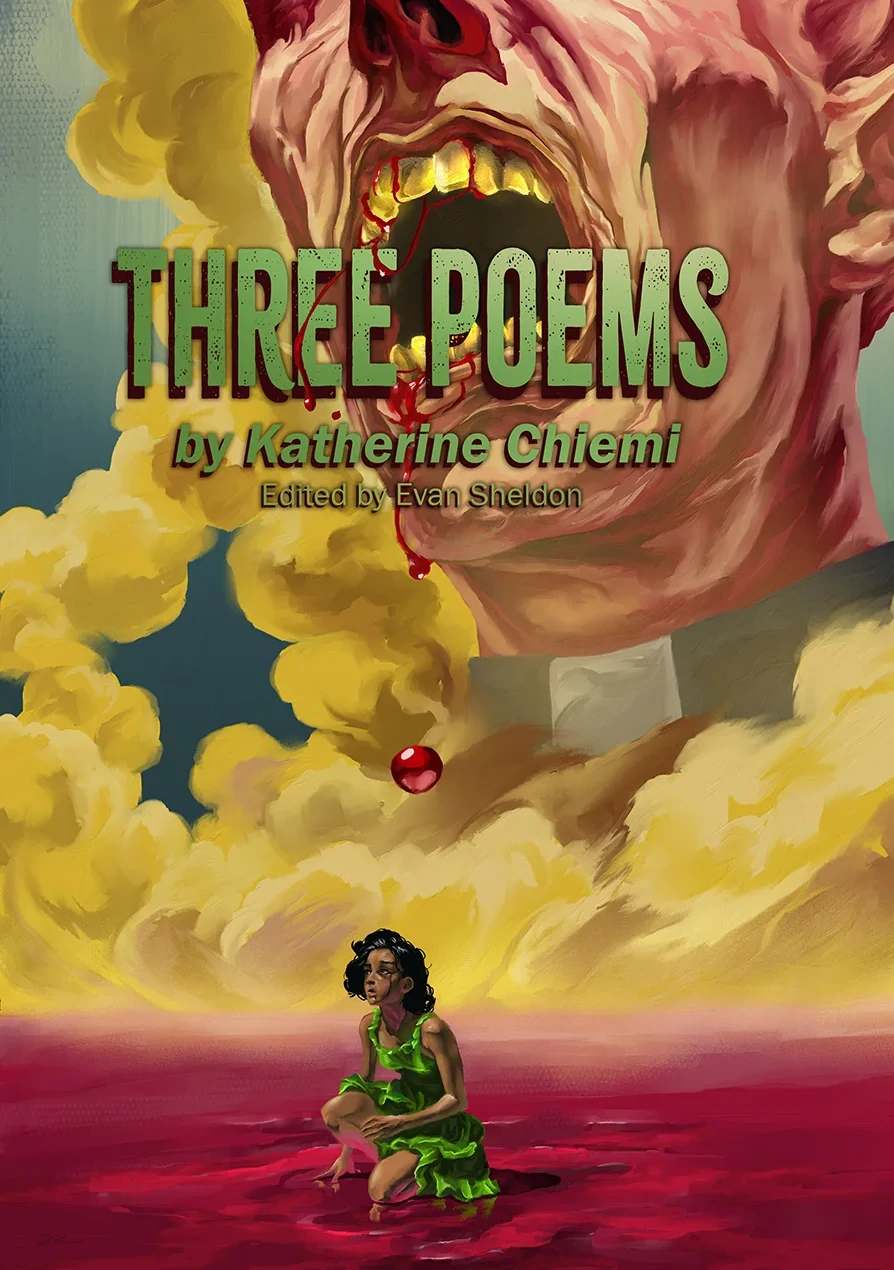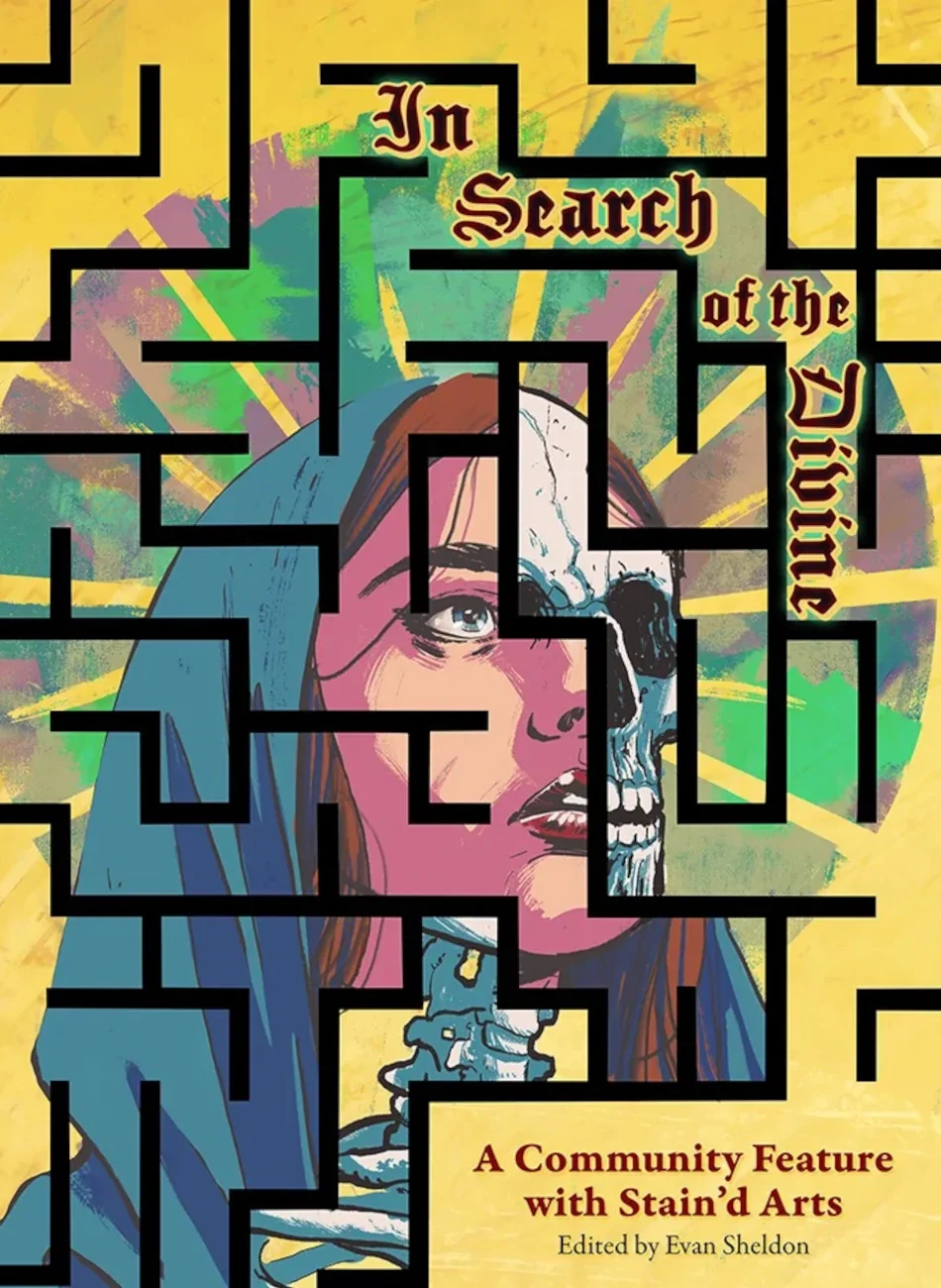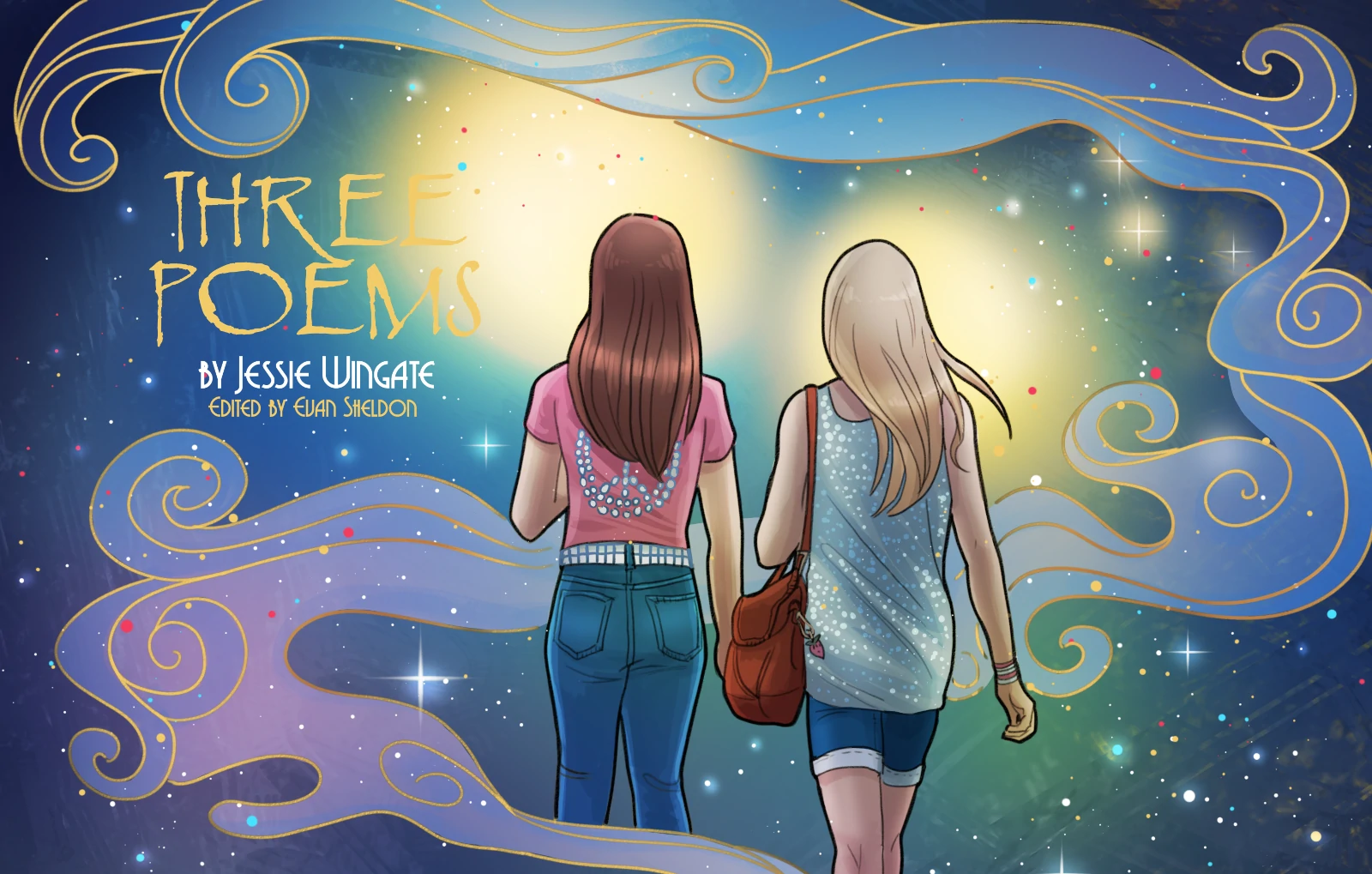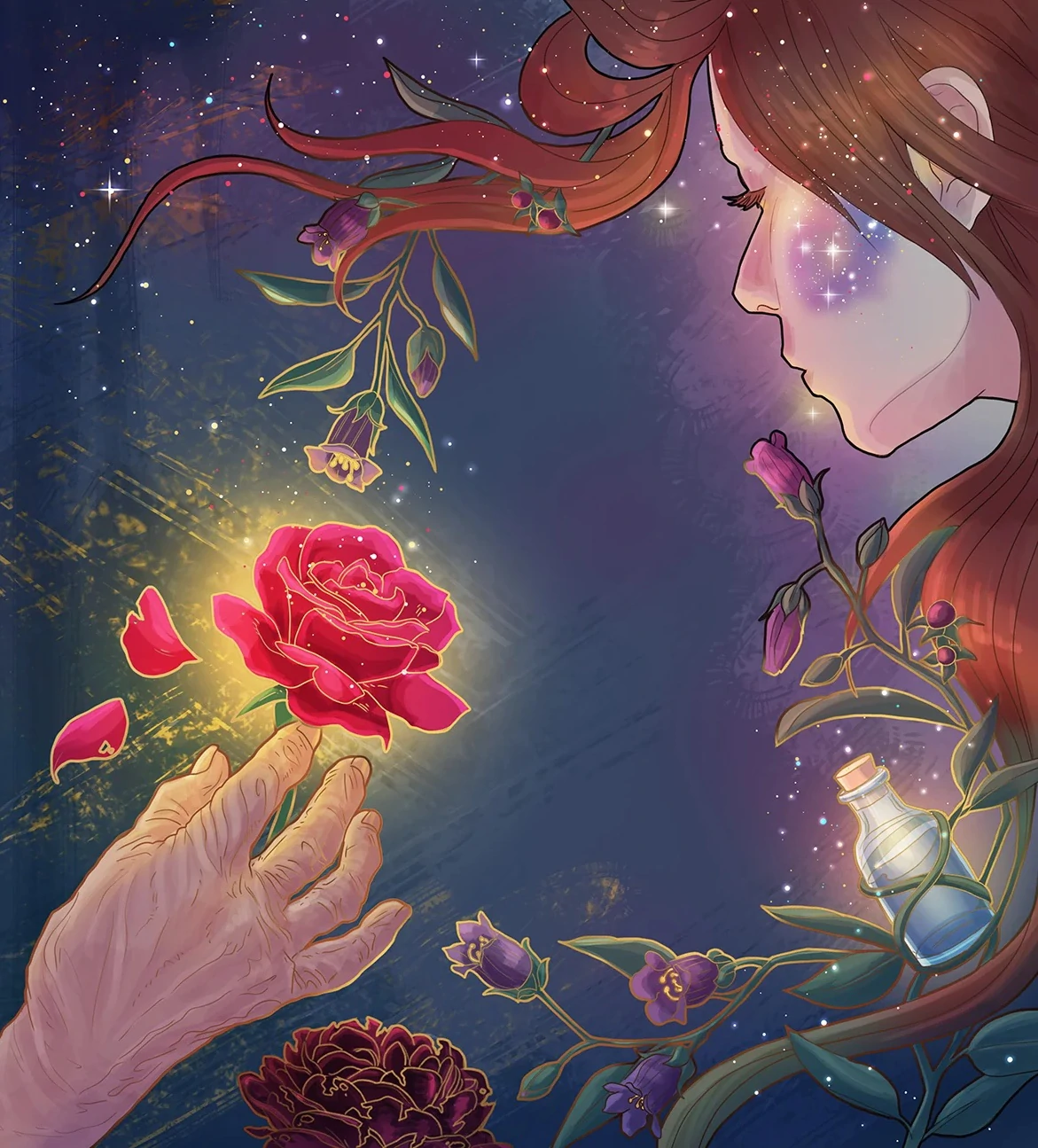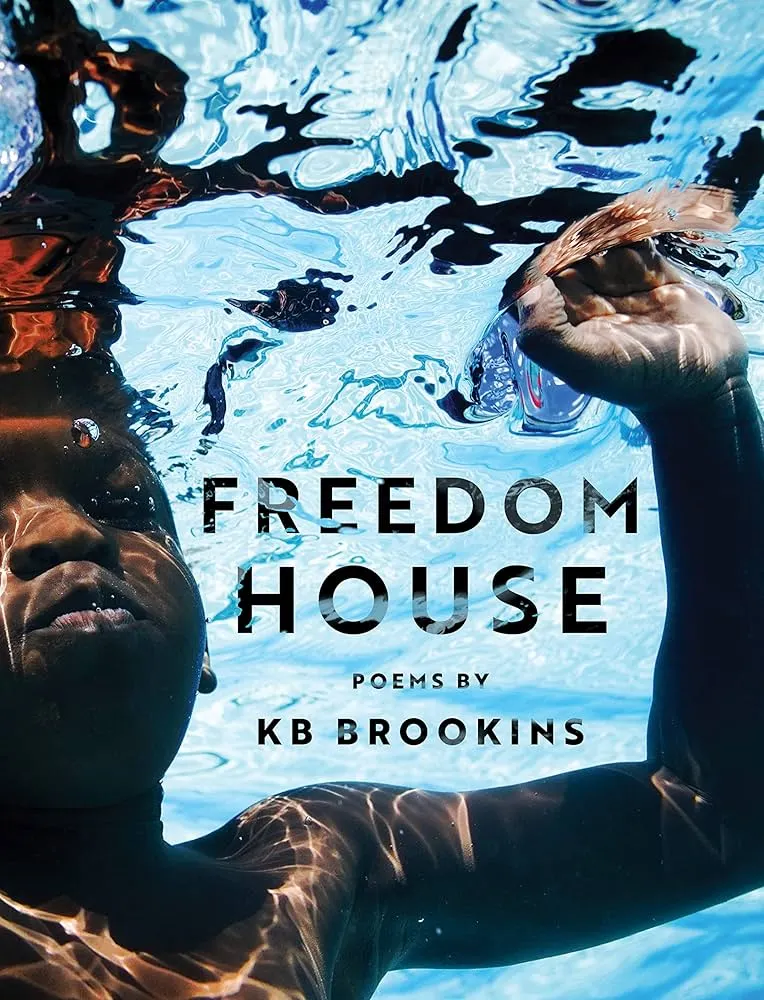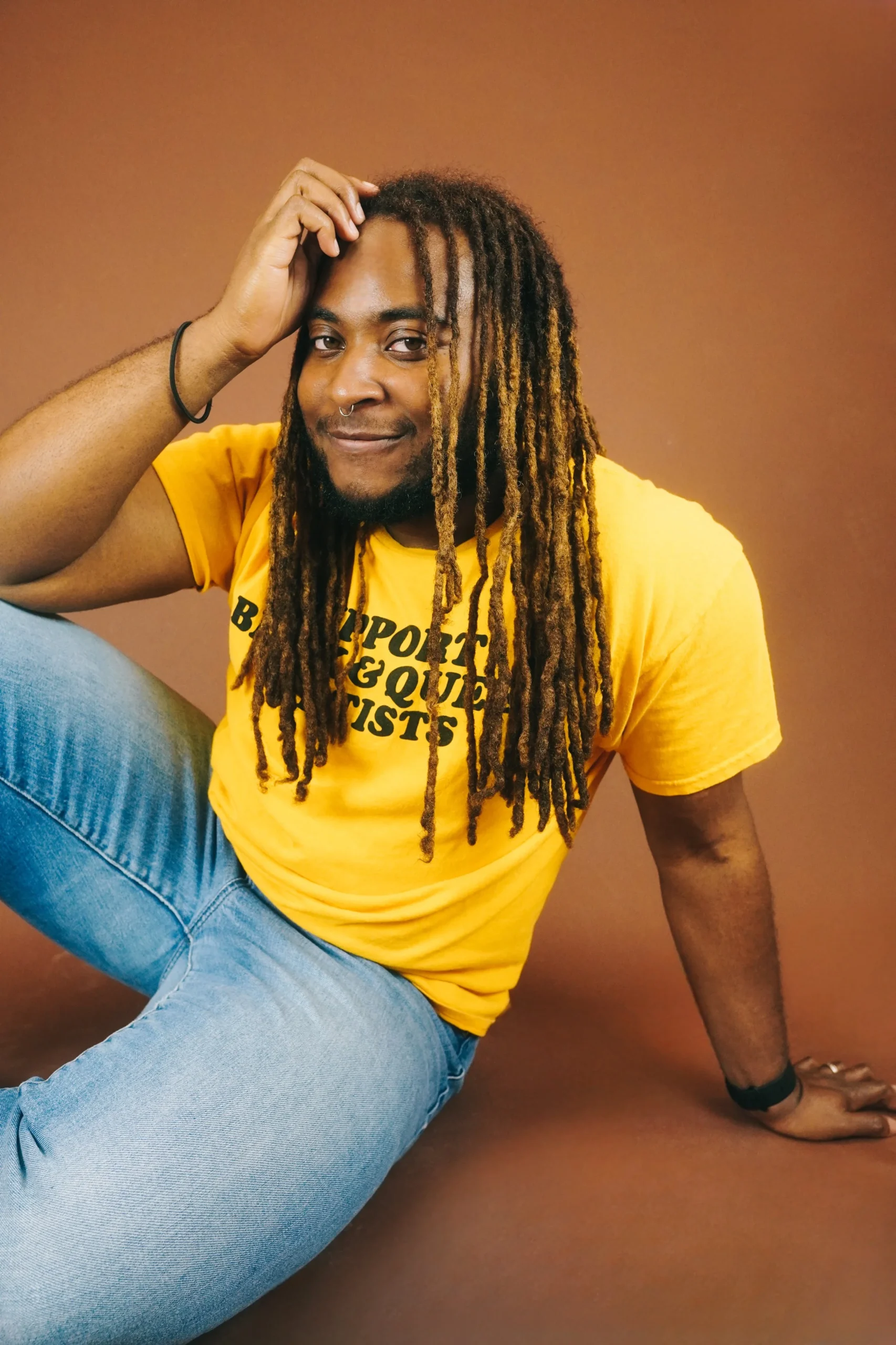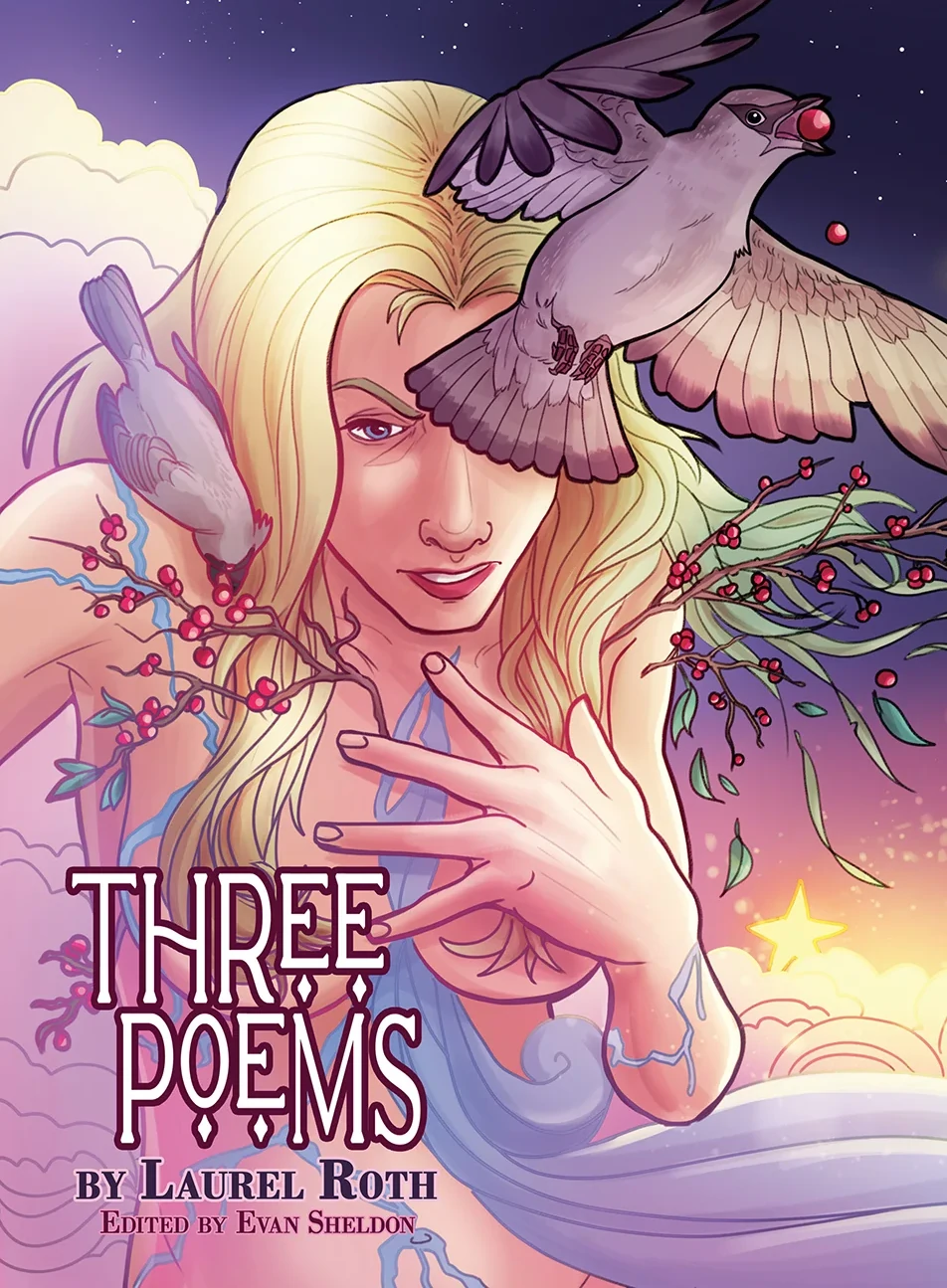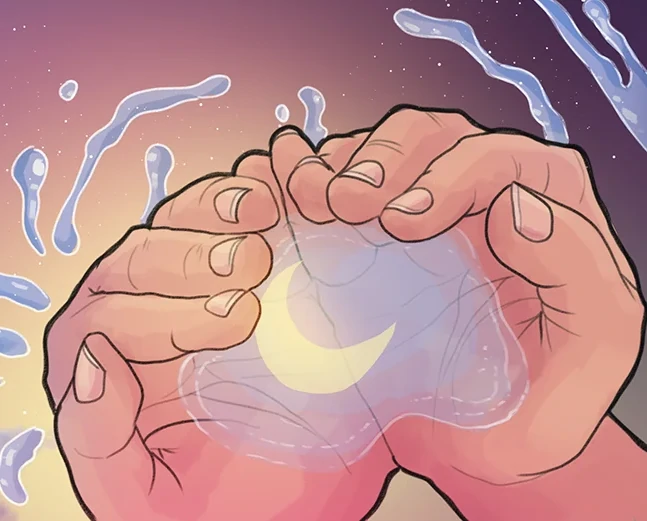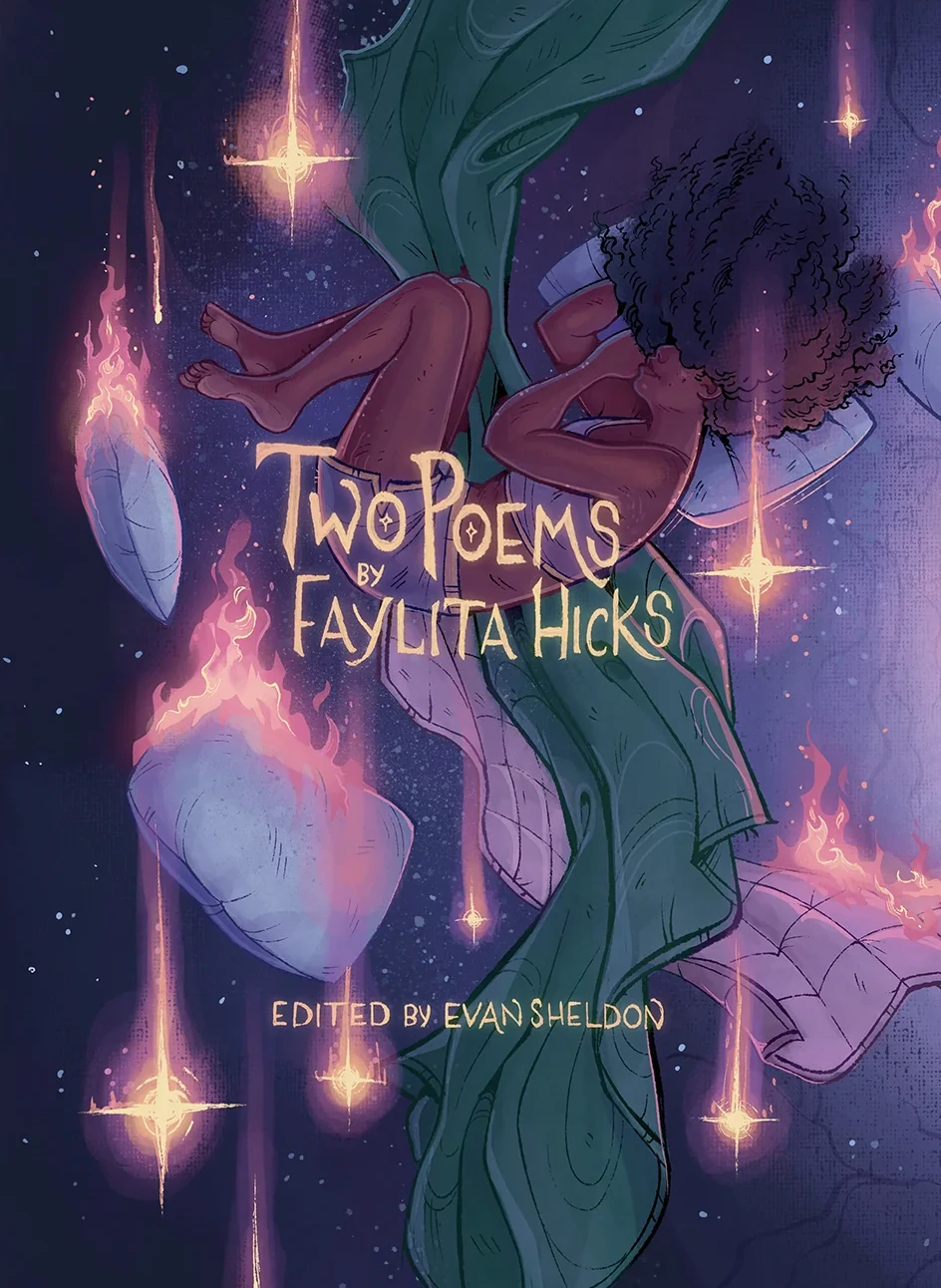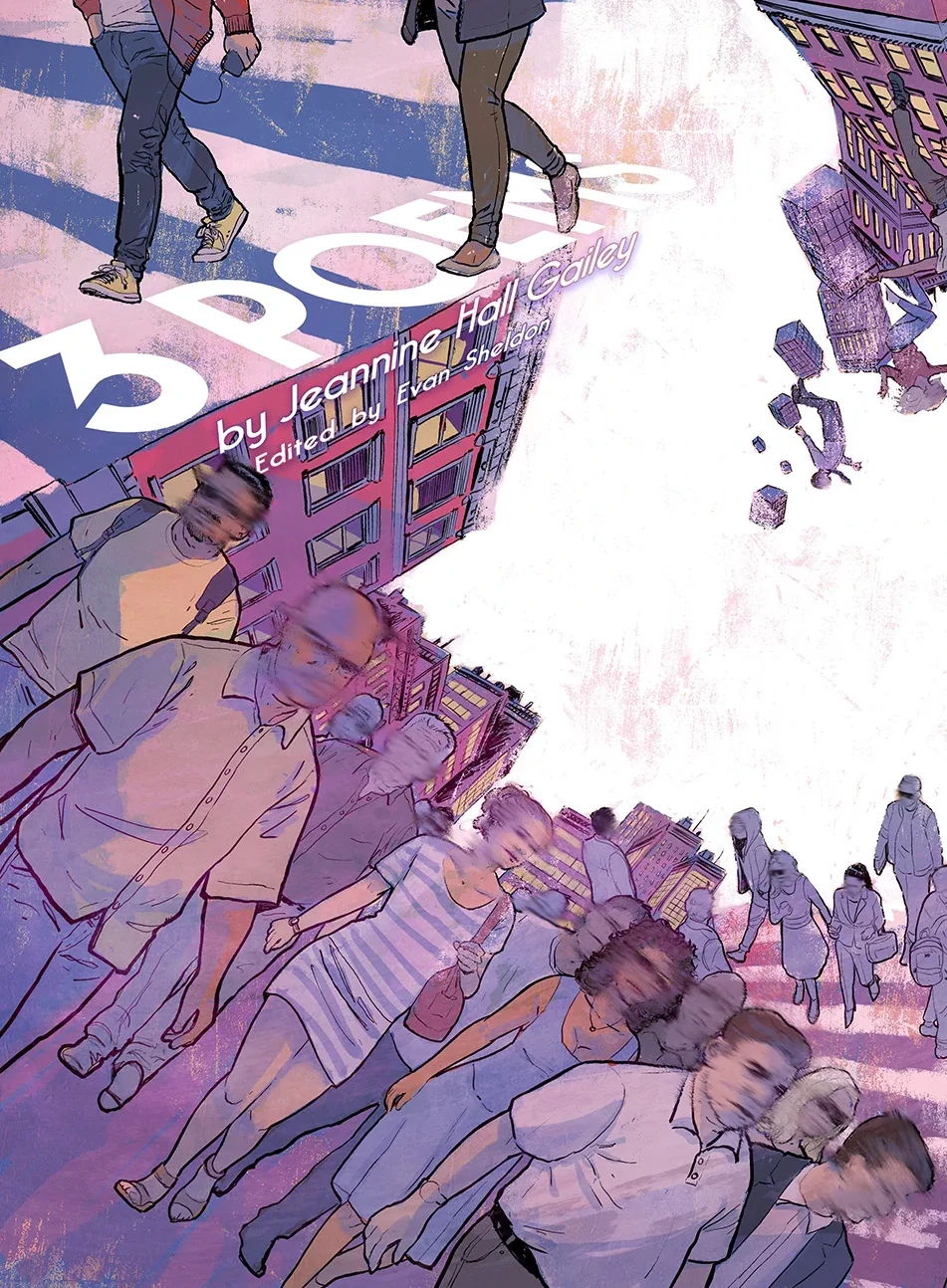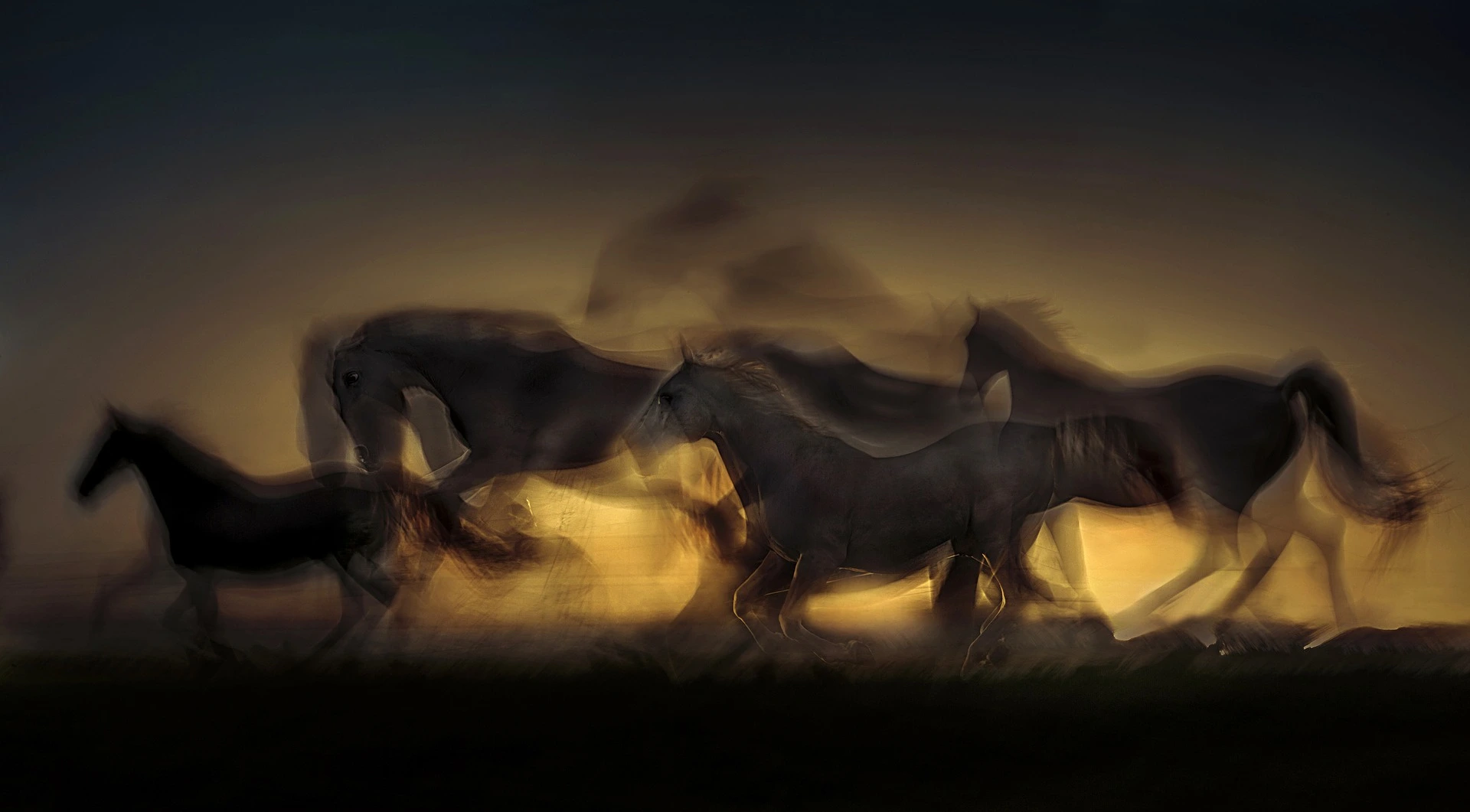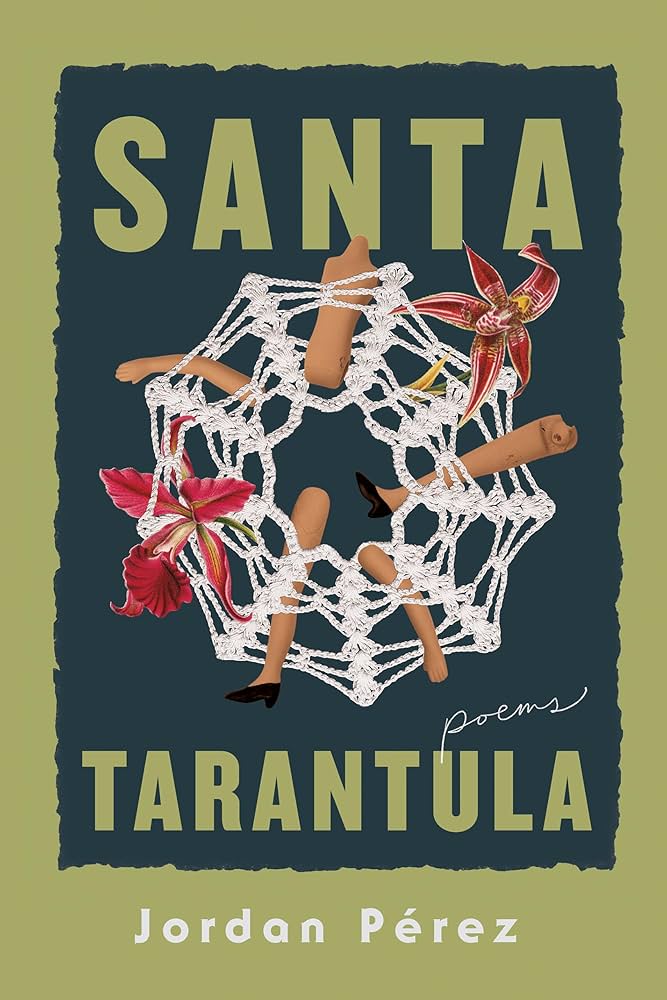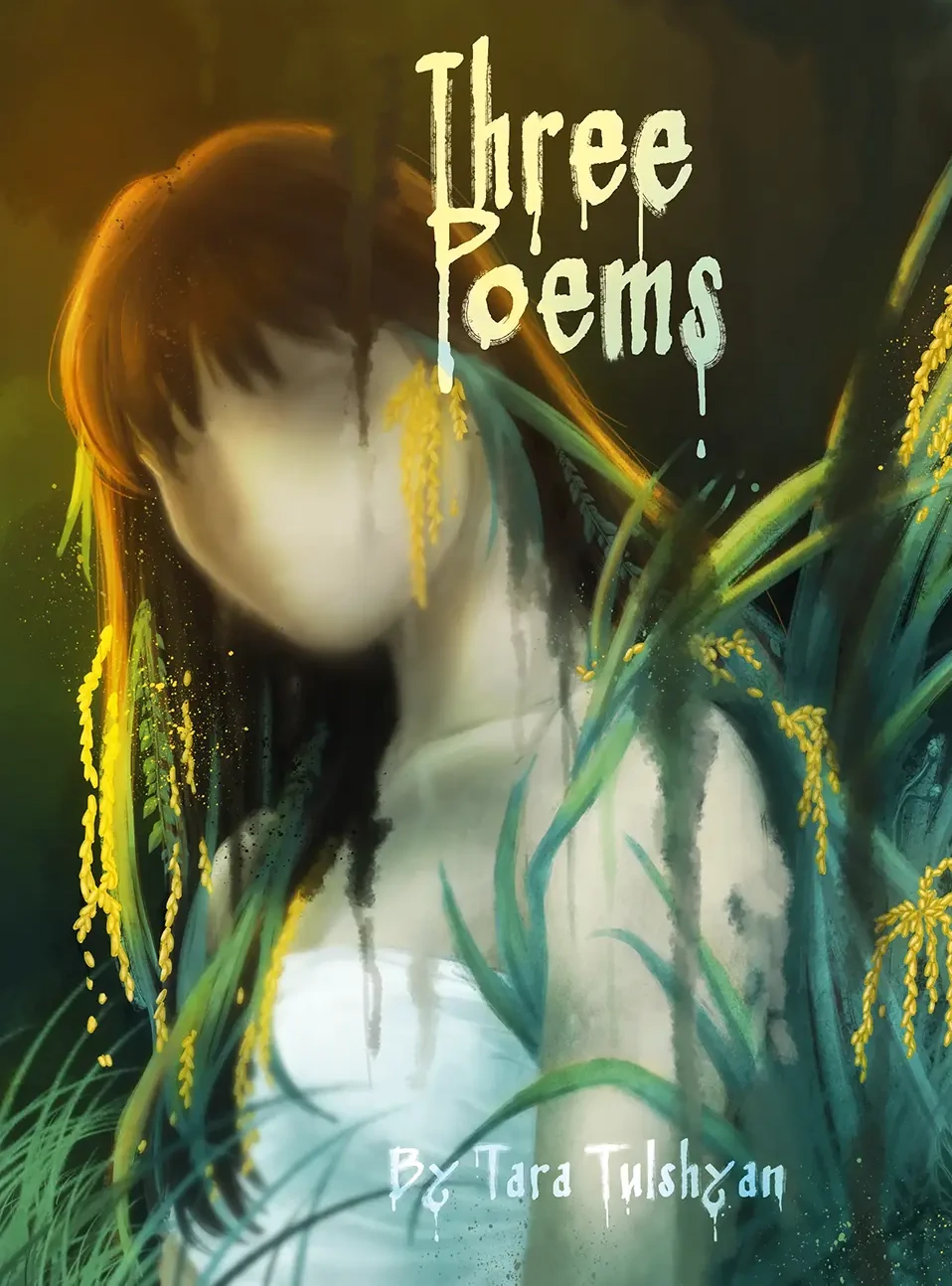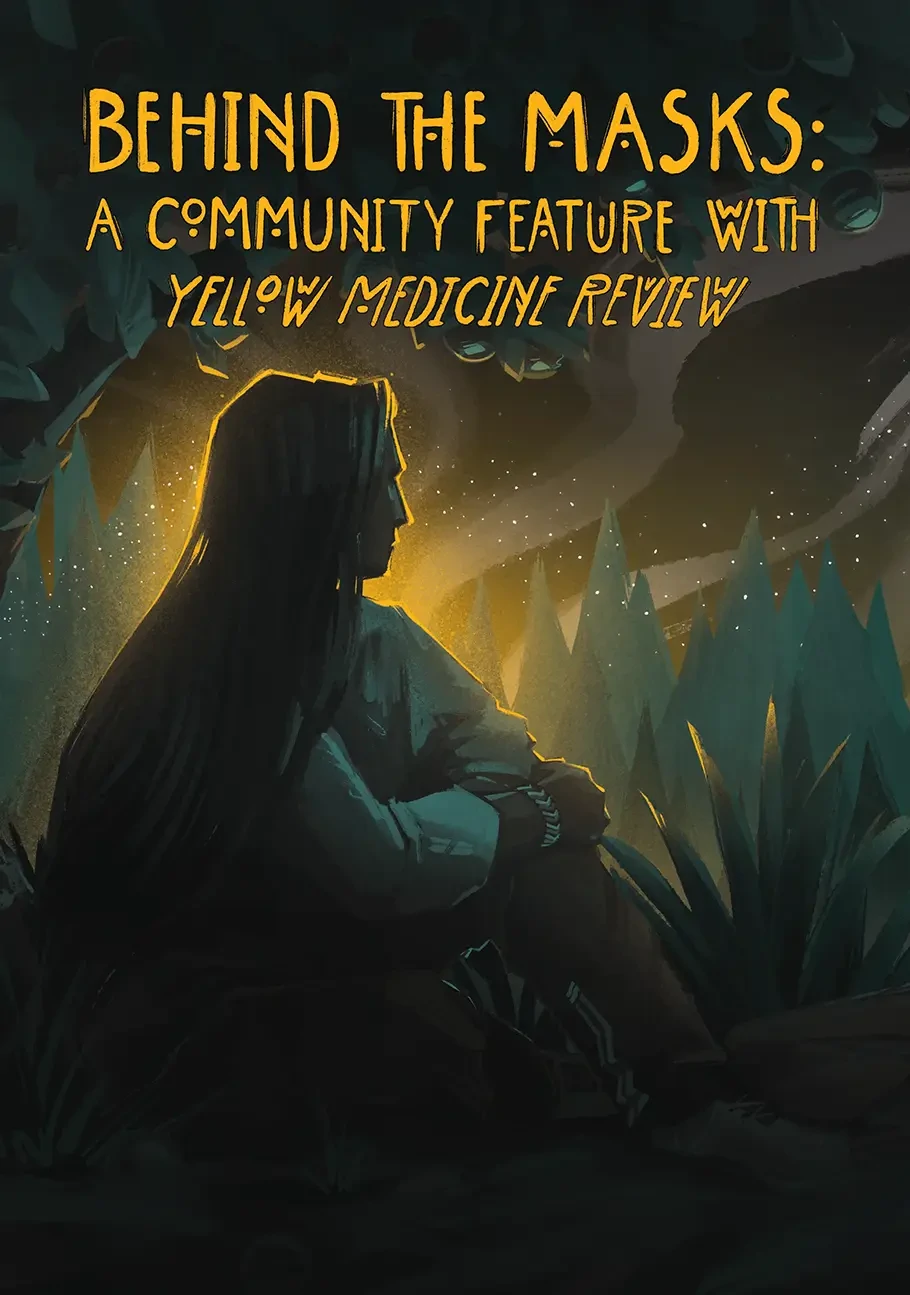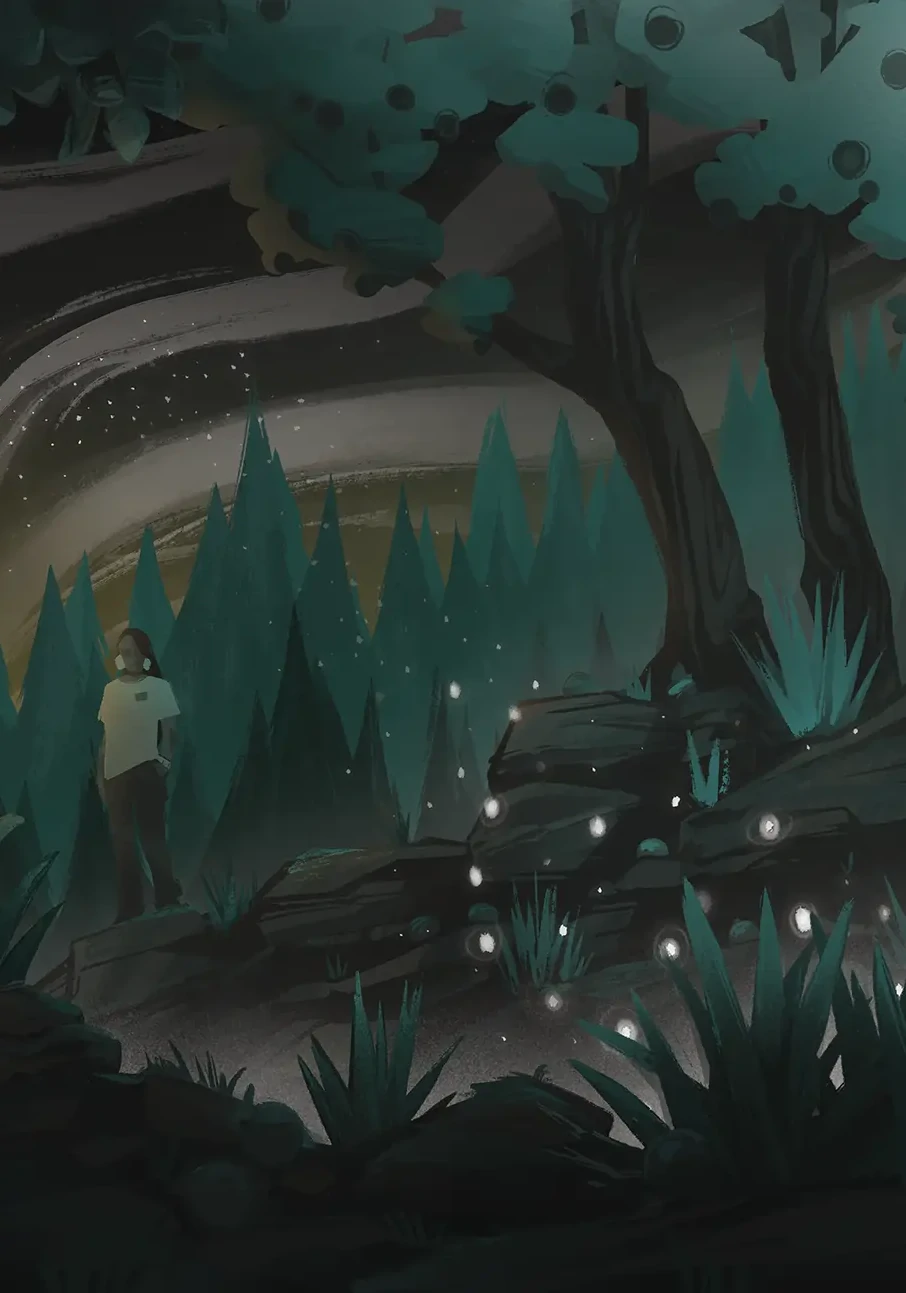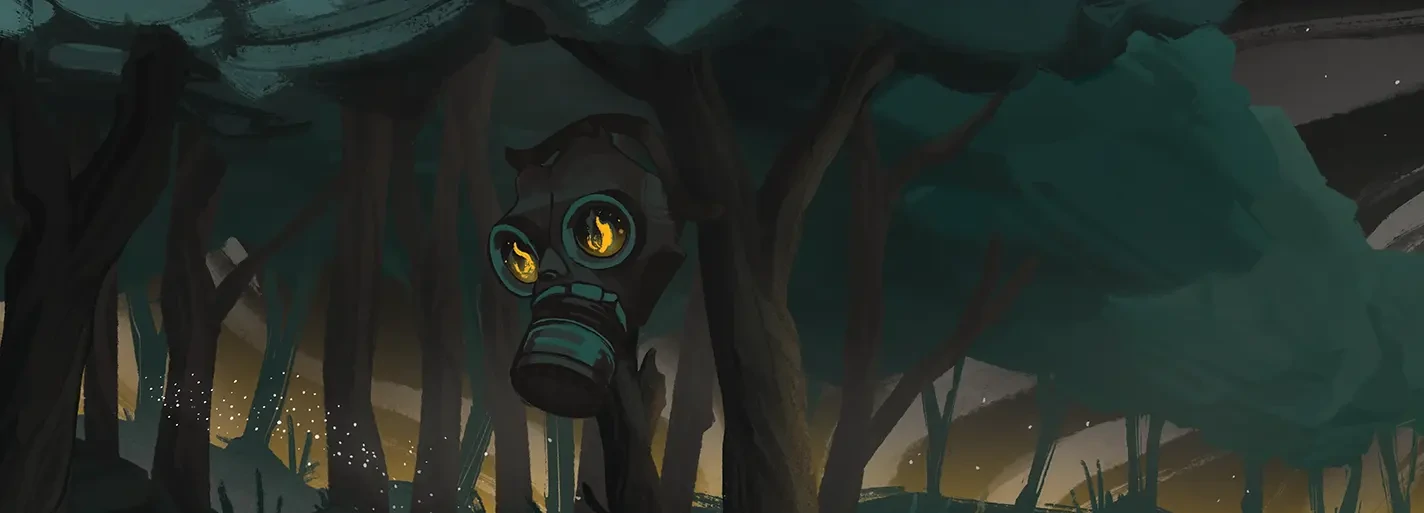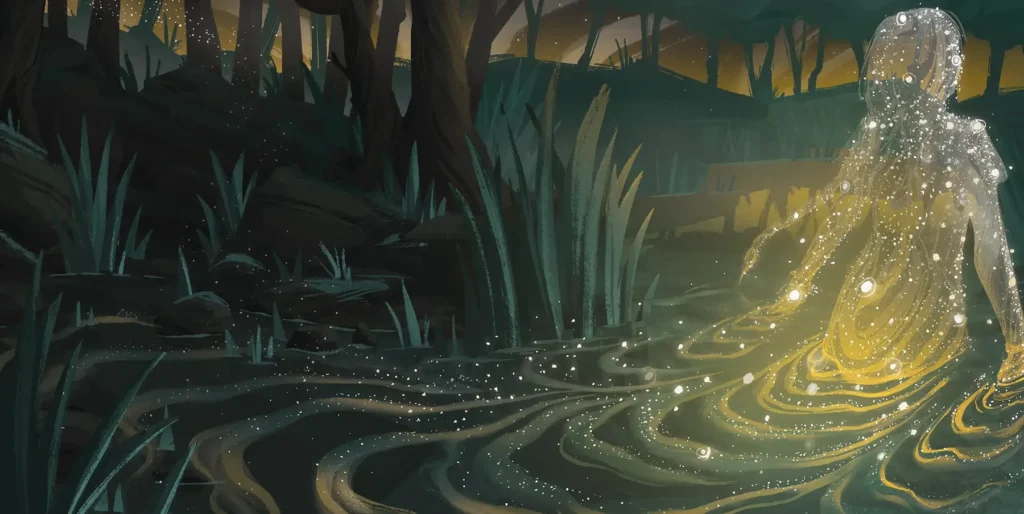What insights did you gain about the relationship between different artistic mediums when adapting Freedom House into a solo art exhibit? How did this process influence your writing?
Well, I learned firstly that creating visual art is not easy (haha). Fun fact: I have art directed all my book covers thus far. I’m good at knowing what looks good but was not so good at making it happen with my hands before these exhibits. Regardless, I first tried painting and was making a lot of hogwash; I then tried digital collage which proved to be more successful. What helped with the transition of poems in Freedom House from the page to digital collage was reminding myself they are two separate art forms simply speaking to each other.
I’d ask myself, “What do I imagine when I read this poem?” and then recreate that with stock images I could find online. It was challenging but rewarding because I pushed myself to do something I thought I was “bad” at! Much love to Prizer Arts & Letters and the Dougherty Arts Center for being open to my ideas and giving me the space/time/resources to debut Freedom House: An Exhibition.
You’ve received numerous awards for your poetry. How do you view the role of recognition in your writing journey, and does it impact your creative process in any way?
I’d be lying if I said it didn’t keep me going. There are days I don’t feel like writing, or feel greatly bewildered by something I’m writing, or feel like I’ll never write again; it’s all par for the course.
Writing is also a profession filled with rejection. At one point, I was getting a rejection letter from a literary magazine or press at least weekly. A yes can feel like salvation when you’ve gotten a hundred nos. Every award I’ve gotten has at least fifty no’s in the shadows of it. Those yeses, alongside having good literary friends and a true passion for telling untold stories about the people I love (including myself), are the things that have really kept me returning to the desk over the past fifteen years.
You tackle many serious topics in your work yet are still able to provide a glimmer of hope for the future for Black queer and trans lives. What role does community play in your writing practice? How does it sustain or build you up?
Community is how I even started writing. I had a group of high school friends who loved going to an afterschool thing called “poetry society” and I wanted to hang out with my friends, so I started going with them. And now I’m a poet—just like that! I think you cannot be a good writer if you don’t have people— in books or IRL or in your phone—that encourage you to go harder.
Outside of friendship, I love having local open mics, reading series, literary organizations, indie bookstores, and a robust library system where I live, giving me ample opportunities to learn and listen to and read creative writing (check out my literary Austin list!).
And even outside of the literary sphere, I’m in a city where several stellar Black and queer folk like Aira Juliet, Gothess Jasmine, Tarik Daniels, Joe Anderson, and many more are making space for Black queer futurity and art. Hope and community are essential to literature and life.
Pretty does a great job at braiding poetry into various sections as well as bleeding into the prose. How has poetry inspired you to express intense, passionate emotions when talking about issues important to you?
Well, poetry is the language of the heart. I learn that from every poet I read and every poet I’m lucky enough to be friends with. We’re working in a medium that intentionally explores things previously thought of as unknowable, unsayable, and the like. I turn to poetry when I have a feeling that can’t be relayed in everyday speech; poetry inspires me to be my most honest self. So yes, I brought those impulses to Pretty, which is a book that tries to pin down many fleeting memories I have of my life—which has been marked by racism, queerphobia, domestic violence, state violence, and many other hard things, unsayable things. Life asks a lot of questions of us. In Pretty, I answer some of those with prose and poetry.
The publishing process can feel intimidating. What was that process like for you and what advice would you give to aspiring authors?
It has been beautiful in some ways (AKA: meeting really giving editors and such). It has also been degrading in others (AKA: being asked to pay fees for people to consider my work, anti-queer/anti-Black editors, etc). For this reason, it is essential you send your work to literary magazines and presses who are invested in your voice (rather than what they think you SHOULD sound like). They should also have a diverse staff, and (in my opinion) not charge you out the wazoo just to read your work. You shouldn’t be going broke trying to be a writer.
It’s also critical, vital even, to gain a literary community; you can’t write a book and expect people to come out of the crevices to support it. The literary world is a give and take thing. Many of us are doing a lot for very little pay, but we do it because we LOVE words. Make genuine connections with your local bookstores, open mic programmers, literary orgs, etc.
Do not expect people to givegivegive and you taketaketake; make yourself useful to your local community. Also, get some discipline (I say as a non-daily writer). Put time on the calendar to write, then actually write when that time comes along. Find publishing opportunities via Chill Subs or something like that. Also, when your book inevitably comes out, remember it is a privilege to make it that far. Rejoice in it.
Looking ahead, how do you envision your writing evolving in the future? Are there specific themes or projects you’re eager to explore that differ from your previous work?
Man, I hope to always be trying to surprise myself. I hope for the fun and excitement I get from writing and publishing to always outweigh the necessary confusion and unnecessary frustration. I’m currently working on two projects that I got a 2023 National Endowment of the Arts fellowship for. I’m also applying to a whole bunch of stuff. We’ll see!
